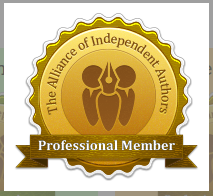|
A while back, I posted a review of 'The White Room' by bestselling thriller writer Martyn Waites. I'm delighted to welcome the man himself to my blog today. Here's our discussion: Tell us about your novel, The Woman in Black: Angel of Death.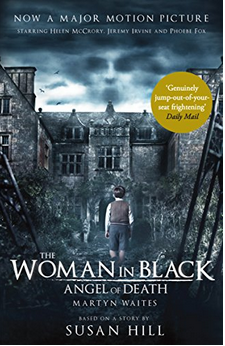 Well, it’s something I’m particularly proud of. At first I thought I was just going to be writing a film tie-in which I thought would be fun because I hadn’t done anything like that before. Also I’m a huge Hammer Film fan and to have my name and Hammer on the spine of a book was enough for me, really. Plus it was a complete departure from anything I had written before. The opposite of my usual stuff, really. But … then I was told this wasn’t just to coincide with the new film but was going to be the official sequel to the novel itself. And then I found myself in the papers answering questions. And then I realised I’d taken on quite a daunting task. But I wrote it and really enjoyed it. It’s different to the first one and different to the film as well. I saw it as my chance to use every gothic trope that I could think of, making homages to all the great writers and filmmakers who had so excited me. So Poe is in there, a bit of M R James, hopefully a bit of Terence Fisher . . . Great fun to write. Has your early career as an actor helped you with your novel writing? Do you see yourself returning to acting in the future? I don’t know. It’s probably a never say never thing. I have no plans to return to acting but I would listen to offers. However, I’ve been out of it for so long I doubt I’ll get any offers. Also, I used to love theatre; that was my real passion, more than TV or anything else. But the thought of committing myself to a long run now doesn’t really appeal. As to whether it’s helped in my writing: yes, I think so. I find creating characters for the page the same as creating them onstage. I use the same intuitive processes as I would as an actor. Find the voice, the look, the walk, etc. And also, I find dialogue very easy to write. I think that’s down to my actor background. Will you venture into any other genres? If so, which ones?I already have. I’ve ventured into music journalism. Great Lost Albums came out in 2014. It was a collaboration between myself, Mark Billingham, Stav Sherez and David Quantick. We spent years trying to track down albums that we had only heard whispers about, legendary albums that may never have even existed . . . No we didn’t. It was a comedy book. Mark and I were trying to entertain each other on a train one day when we were out on tour together. What would Morrissey’s great lost panto album sound like? What if Pete Townsend did a rock opera about a deaf, dumb and blind bingo caller called Bingo Wizard? What if Coldplay became IKEA’s resident house band? Those kinds of things. Just to entertain ourselves really. By the time we’d got back to London we thought we had a book there. So we roped in Stav, who is of course a brilliant crime novelist but also used to be a music journalist, and Dave Quantick who also used to be a music journalist but who’s now better known for writing for the BAFTA winning Harry Hill’s TV Burp, The Thick of It and the Emmy-winning Veep. Then it was just a question of coming up with fifty albums that made us all laugh. The book came out last autumn and despite being the funniest book ever written, kind of disappeared. So it was back to the day job. You also write as Tania Carver. How different is that from being Martyn Waites?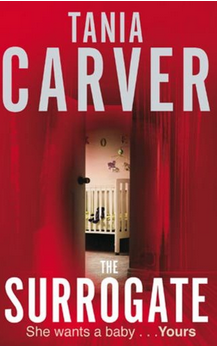 Well, there’s the name for a start. It’s interesting. Tania (if I can refer to myself/herself in the third person) is different from Martyn. The books are slightly different. They’re all crime novels but with the Tanias there are changes of emphasis, there are scenes that I wouldn’t put in a Tania that I’d keep for a Martyn. And vice versa. I don’t actually know what the differences are but I can feel them when I’m writing. I guess it’s like how it must have been for Donald Westlake writing as Richard Stark. The same, but different. Flexing different muscles, playing different chords. That kind of thing. Or at least that’s how I think of it. The other thing is writing under a female pseudonym. When the first Tania came out, The Surrogate, it was a massive bestseller, both here and internationally. I can remember standing in W H Smith where it was book of the week and watching people come in, pick it up and take it to the till. And of course I couldn’t say anything. Well, not without being forcibly ejected from the shop. I’ve got used to it now though. Tania is kind of my main writing at the moment. But doing things like Woman in Black and Great Lost Albums help to keep me and the series fresh. Tell us how American crime fiction of the Nineties influenced your early work.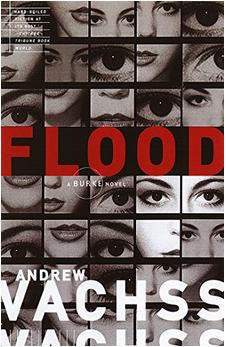 Wow, you’ve done your homework. Or you’ve heard me blathering on about this at great length, usually when I’ve had a drink. It was the late eighties and I was casting around for my ‘thing’. I was already acting and had what other people thought of as a promising career (which I think meant I was working and not unemployed). I loved reading and had tried everything but nothing seemed to stick, nothing spoke to me, moved me. Until I read Chandler. Then Hammett, then Ross MacDonald. Then James M Cain . . . and on and on. Actually this was in the mid-eighties when I was still at college. When I left I was still reading the old school stuff. I hated British crime writing at the time. Parochial, dull, boring. No connection with me or my life. Then I looked back at some of the neglected British writers like Ted Lewis, Gerald Kersh and, my favourite, Patrick Hamilton and wished we had people like that still writing. So I had a look at some of the American writing that was starting to appear then. And it was a pretty fertile time for it. Like punk and new wave happened over here in the late seventies and revitalised the culture, in the late eighties the same thing happened with American crime fiction. I read Andrew Vachss and it was like someone hadn’t just opened the windows onto a world, they had blown the side of the house off. James Ellroy next, then James Lee Burke, James Crumley, Walter Mosely, Sara Paretsky . . . wow. On and on. And that was when I realised I had found my thing. They wrote about urban landscapes I could recognise, about lives and struggles I could relate to. It was real life reportage, spat back as literature. And I couldn’t get enough of it. And then I thought (because I was already telling myself I was going to write a novel), why don’t I do what they’re doing? Transpose it for the UK but bring that energy, that sense of engagement the politics, the anger with it? Yeah, why not? I realised that quite a few other British writers were having the same idea at the same time. It just took some of us longer to actually get into print. But they were my literary touchstones, the ones who inspired me. You’ve held writing residences in prisons. Do you know if any of your students have published their work? How rewarding did you find encouraging offenders to write?I don’t know if I’ve actually led anyone to be a writer. There were some who were definitely good enough but I don’t know if they have or not. I worked as a writer in residence in a young offenders institution for two and a half years. Then for another year in an adult prison. To be honest, I could write a book on it. It was the most unique experience. It was the most polarised environment I’ve ever worked in. One day you’d be feeling like you could touch the stars, the next like you wished you were shelf-stacking at Budgens. Successes were stratospheric, failures equally so in the wrong direction. It was an honour to try and use my skills to effect a positive change in someone’s life. Tell us a little about the writing process for you. How long does an average novel take? How difficult (or not) are you to live with when creating a novel? Are you a planner or someone who writes by the seat of their pants?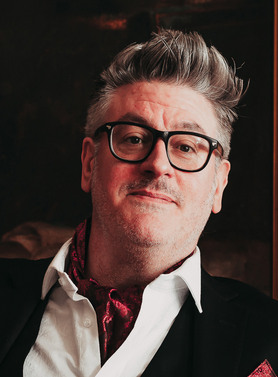 So many questions in that one question . . . Okay, here goes. I can answer the second bit first. How difficult am I to live with when I’m writing? Very. I sometimes put off starting a book because I know that it’s going to change me. It’s like you can never switch off and your mind is always on the work. At my best I’m kind of semi-detached while I’m working. At worst I’m the kind of writer that people go and stay with their relatives rather than be with. Do I plan or make it up? Kind of both, really. I know that sounds diametrically opposed, but it’s not. I usually start with an idea or an image. That then suggests questions to me. And it takes the course of the book for me to answer them. I usually say that the first hundred pages or so are like an audition. It’s me finding out who the characters are, why they’re there, what they sound like . . . all of that. And the ones with the most interesting voices are the ones I want to stick with. Then I can see a structure developing so I start to plan ahead a little. Maybe fifty or a hundred pages or so. Then after that, take stock and plan the next section. And so on. As for how long it takes, I don’t know. I try and allow myself a year to write a novel but always hope it takes less than that and I can fit something else in as well. But it varies. The longest it took me to write a book was five years. The shortest, three months. There are no hard and fast rules. And I also feel when I sit down to start the next book that I’ve learned absolutely nothing for my previous books. A blank screen is always a blank screen. And it’s up to me to be as creative as possible in how I fill it. Finally, tell us something weird and wonderful about yourself that your readers might not know.To be honest, I don’t think there’s anything weird - and certainly nothing wonderful - about me. I kind of wear my passions on my sleeve so most people know my politics, my interests, all of that. I can’t really think of anything. I’m a huge Doctor Who fan, right back to 1963. I love my pulp fiction, my horror movies, my film noir, my comics . . . possibly the only thing that not many people know about me is that I like modelling. Not on the catwalk, obviously, but making models. I’ve got a scale replica of Frankenstein’s monster and the Bride of Frankenstein from the film of the same name to work on next. I’m looking forward to that. Once I’ve finished my Doctor Jekyll and Mister Hyde model, that is. I enjoy it. The solitude, the concentration. You can listen to music while you work, which I can’t while I’m writing. And it uses another part of my brain to the writing part, lets me flex some other mental muscles. Love it. I used to win competitions for it when I was little. And that’s something not many people know. Thank you, Martyn! It's been a pleasure to talk with you.You can find out more about Martyn and his books, including the Tania Carver ones, via his website, www.martynwaites.com. Or you can connect with him on Twitter - @MartynWaites
1 Comment
|
Categories
All
Subscribe to my blog!
Via Goodreads
|
Join my Special Readers' group and receive a free copy of 'Blackwater Lake'!
|
Privacy policy Website terms and conditions of use
Copyright Maggie James 2018 - current date. All rights reserved.
Copyright Maggie James 2018 - current date. All rights reserved.
 RSS Feed
RSS Feed
